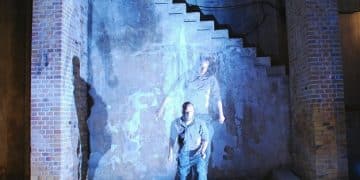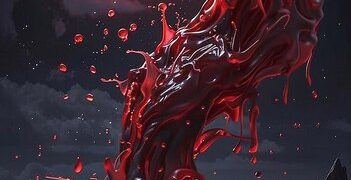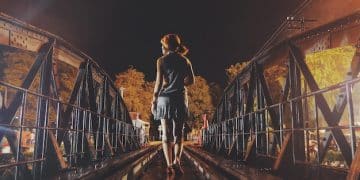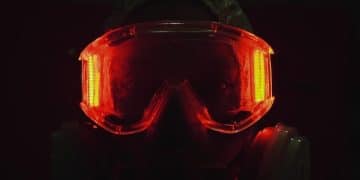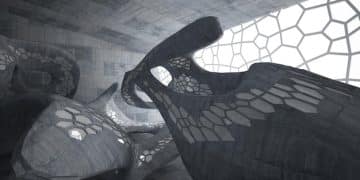Foundation Season 3: Hari Seldon’s Plan – Failure or Success?

Fans speculate whether Hari Seldon’s ambitious psychohistorical plan will ultimately fail in Foundation Season 3, analyzing complex narratives, potential deviations from Isaac Asimov’s original works, and the philosophical implications of predestination versus free will within the series.
As the anticipation builds for Foundation Season 3, one question looms large over the collective consciousness of its dedicated fanbase: will Hari Seldon’s meticulously crafted psychohistorical plan ultimately succumb to unforeseen variables, perhaps even intentional defiance? This fan theory analysis delves into the intricate possibilities and compelling arguments surrounding the potential failure or deviation of Seldon’s monumental endeavor.
Understanding Hari Seldon’s Psychohistory
Hari Seldon’s psychohistory is the cornerstone of Isaac Asimov’s Foundation saga, a fictional science that uses mathematical equations to predict the future behavior of large populations. It’s a concept that posits, given enough data, the broad strokes of humanity’s destiny can be charted, even if individual free will remains unpredictable. In the Apple TV+ adaptation, this science is given a visual and philosophical weight that underscores its monumental significance and its inherent vulnerabilities.
The series has taken liberties with Asimov’s source material, diverging in character arcs and narrative structure, which naturally fuels speculation regarding the ultimate fidelity of Seldon’s plan. While the books present psychohistory as an almost infallible predictive tool, the show introduces elements that challenge its deterministic nature, such as the direct involvement of characters like Gaal Dornick and the evolving consciousness of the Cleons. These deviations create fertile ground for fan theories that question the sanctity of Seldon’s projections.
The Core Tenets of Psychohistory
At its heart, psychohistory operates on statistical principles, making it highly accurate for large groups over extended periods. It’s not about foretelling individual actions, but rather the collective trend. Seldon’s primary goal was to reduce the Interregnum—the period of chaos and barbarism between the fall of the Galactic Empire and the rise of the Second Empire—from 30,000 years to just 1,000.
- Statistical Regularities: Psychohistory relies on the predictable behavior of masses, not individuals.
- Optimal Path: The plan aims to guide humanity along the most efficient and least destructive path to a new golden age.
- Seldon Crises: Predetermined pivotal events, designed to push the Foundation towards specific outcomes, testing its resilience and adaptability.
The success of psychohistory depends on the adherence to these calculated events. Any significant outside variable, or a collective subconscious shift, could potentially derail the entire trajectory Seldon envisioned. This is where the adaptation truly shines, by exploring the ‘human element’ within a seemingly infallible system.
The Human Element as a Variable
The show’s emphasis on characters like Gaal Dornick, a natural empath with precognitive abilities, and Salvor Hardin, with her unique intuition, introduces variables that weren’t as prominent in Asimov’s original narrative. These characters often seem to act as wildcards, capable of influencing the psychohistorical path in ways Seldon might not have fully accounted for. This raises a crucial question: can psychohistory truly encompass the unpredictable nature of exceptional individuals?
The series continually probes the tension between destiny and free will through its characters. Is their agency merely part of the plan, a pre-calculated deviation, or an actual challenge to Seldon’s design? This foundational conflict is central to many fan theories about the plan’s ultimate fate.
Potential Threats to Seldon’s Plan in Season 3
Season 3 of Foundation is poised to introduce new challenges and intensify existing ones, making the prospect of Seldon’s plan going awry more plausible than ever. The primary threats appear to stem from both internal and external forces, each presenting unique dangers to the psychohistorical trajectory.
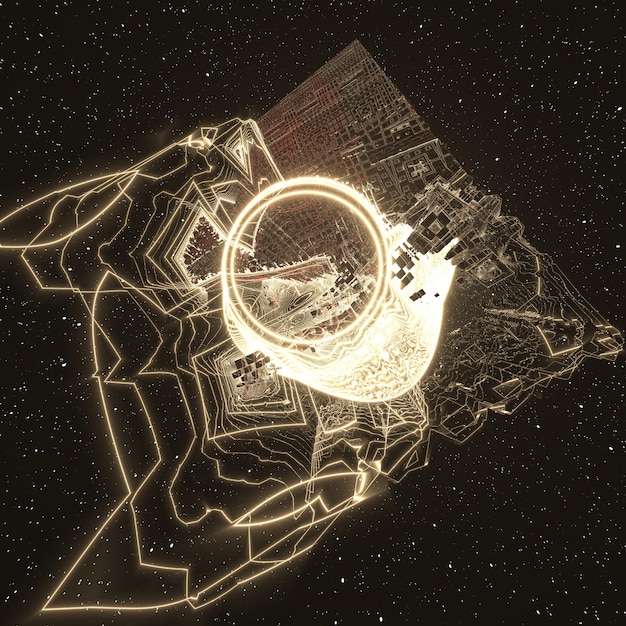
The Evolving Cleonic Dynasty
The Cleons, particularly Empire and Day, represent a dynamic threat that Asimov’s books handled differently. In the show, the genetic dynasty is depicted as increasingly volatile and unpredictable, especially after the introduction of genetic diversification. Day’s journey, from his rigid adherence to imperial dogma to his startling personal revelations, suggests a capacity for change that could have profound implications.
If the Cleons deviate too far from their projected behavior, their actions could ripple through the galaxy in ways psychohistory might struggle to contain. Their increasing obsession with the Foundation and Seldon’s legacy could lead to direct conflicts that were not part of the original plan’s design for peaceful, or at least manageable, collapse.
- Genetic Diversification: The introduction of new genetic material could make the Cleons’ future actions less predictable for psychohistory.
- Personal Evolution: Day’s recent transformations suggest a capacity for radical change, posing a threat to Seldon’s statistical predictions.
- Direct Intervention: The Cleons’ growing awareness and enmity towards the Foundation could provoke direct, unpredicted attacks.
The very stability of the Empire, ironically, rests on the Cleons’ continuity. If that continuity fundamentally alters, the entire collapse scenario, as envisioned by Seldon, might also change, potentially for the worse. Their unpredictable nature poses a significant risk to the calculated precision of psychohistory.
The Rise of the Mentalics and New Powers
The emergence of Mentalics, individuals with psionic abilities, is a significant departure from the early stages of Asimov’s books and presents another formidable challenge. While the Second Foundation eventually leverages mentalic abilities, their premature or uncontrolled appearance could disrupt the delicate balance of Seldon’s plan.
Gaal Dornick and the emerging Mentalics possess powers that can directly influence thoughts and emotions, a force that operates on an individual, rather than statistical, level. Such abilities could either be a crucial component for the Second Foundation’s success or an existential threat if they fall into the wrong hands or develop in an uncontrolled manner.
The potential for a “Mule”-like figure to emerge earlier than anticipated, an individual whose mentalic powers can completely upset psychohistorical predictions, is a recurring concern among fans. Such a figure, not accountable to the grand statistical movements, could single-handedly derail the millennia-spanning plan.
Furthermore, the general expansion of known space and the discovery of new phenomena or civilizations could introduce variables Seldon never factored into his equations. The sheer vastness of the galaxy means there are always unknowns, and any fundamental new discovery could shatter the stability of the psychohistorical model.
Fan Theories: How the Plan Might Fail or Deviate
Fan theories about the failure or deviation of Seldon’s plan are rich and varied, often drawing parallels between Asimov’s canon and the show’s narrative departures. These theories often center on the concept of human unpredictability and external forces not accounted for by psychohistory.
The Mule’s Early Arrival or Precursor
The most prominent theory revolves around the premature or altered arrival of a “Mule”-like entity. In Asimov’s books, The Mule is a powerful mutant whose psionic abilities allow him to directly manipulate emotions, making all psychohistorical predictions useless. His arrival in the books causes a significant crisis for the Foundation, forcing the Second Foundation to emerge and intervene.
Given the show’s emphasis on Gaal Dornick’s mentalic abilities and the presence of other individuals with psionic potential, many fans believe a precursor to The Mule, or even The Mule himself in a different form, could appear in Season 3. Such a character would be immune to statistical prediction because their influence is deeply personal and pervasive, directly altering the emotional landscape of populations.
- Direct Emotional Manipulation: A psionic entity could bypass rational thought and influence the collective unconscious, rendering psychohistory inert.
- Unpredictable Chaos: The Mule’s very nature is randomness from a psychohistorical perspective, creating unmanageable variables.
- Shift in Foundation’s Focus: An early Mule crisis could force the Foundation to adapt in ways Seldon hadn’t planned, potentially leading to a different outcome for the Second Empire.
This theory suggests that humanity’s greatest strength—its capacity for individuality and emotional depth—could also be psychohistory’s greatest weakness. If emotions can be swayed on a grand scale, then the statistical aggregates that form the basis of Seldon’s plan become meaningless.
The Cleons’ Deliberate Sabotage
Another compelling theory posits that the Cleons, particularly Day, might become aware enough of Seldon’s plan to actively try to subvert it. While psychohistory relies on the Empire’s eventual collapse, and the Cleons are inherently part of that eventual doom, their awareness could lead to unexpected countermeasures.
What if the Cleons decide to accelerate their own destruction in a desperate attempt to take the Foundation down with them? Or, conversely, what if they become so obsessed with maintaining their power that they ignore the very signs of decay psychohistory predicts, thus delaying the inevitable in a way that creates a more chaotic path than Seldon accounted for?
The show has already established the Cleons’ paranoia and their willingness to employ brutal tactics to maintain their grip on power. If they discover the true nature of Seldon’s plan, their retaliatory actions could introduce entirely new variables, forcing psychohistory to adapt or even break.
Unforeseen Cosmic Events or Alien Intervention
While Asimov’s Foundation series largely focuses on humanity, the vastness of the galaxy in the TV adaptation subtly hints at other possibilities. What if an unforeseen cosmic event, like a black hole anomaly or a new stellar phenomenon, alters the trajectory of known space in a way Seldon couldn’t have predicted?
Even more intriguing is the possibility of alien intervention. While Asimov deliberately excluded intelligent alien life from his Foundation universe (to focus solely on humanity’s development), the TV show has left subtle hints and the possibility remains. An advanced alien civilization, with its own agenda and unpredictable technology, could certainly disrupt a plan designed solely for human populations.
Such external forces would represent truly un-calculable variables, breaking beyond the scope of psychohistory, which is built upon the statistical behavior of human beings. This type of failure would be catastrophic, as it would come from a domain entirely outside the model’s parameters, making it impossible to mitigate.
The Philosophical Implications of Psychohistory’s Failure
The potential failure of Hari Seldon’s plan is not just a plot device; it carries profound philosophical implications, challenging our understanding of destiny, free will, and the very nature of truth and predictability.
Determinism vs. Free Will
At the heart of the Foundation narrative is the enduring philosophical debate between determinism and free will. Psychohistory is the ultimate deterministic tool, suggesting that destiny is quantifiable and predictable. However, the show often pushes back against this notion, particularly through its characters.
If Seldon’s plan fails, it could signify a triumph of free will over predestination. It would argue that even the most complex mathematical models cannot account for the individual’s capacity to choose, to defy, and to forge their own path. This would be a powerful statement about human agency, suggesting that despite grand historical tides, a single individual (or a group of determined ones) can fundamentally alter the course of history.
Conversely, a “failure” might not be a failure at all, but rather a recalculation. Perhaps psychohistory is so robust that it can even account for seemingly random acts of defiance, folding them back into the grand design. This would lead to an even more unsettling conclusion: that even our perceived free will is, in fact, part of a larger, predetermined framework, making the notion of true individual agency an illusion.
The Limits of Science and Knowledge
Psychohistory represents the pinnacle of scientific achievement, a tool that grants humanity seemingly omniscient foresight. If it fails, it would be a humbling reminder of the limits of scientific knowledge. It would suggest that there are always variables beyond our comprehension, forces that cannot be quantified or predicted, no matter how advanced our models become.
This failure would underscore the inherent humility required in the pursuit of knowledge. It would force humanity to acknowledge that some aspects of existence—be it true randomness, divine intervention, or simply the emergent complexity of consciousness—lie beyond the reach of even the most sophisticated mathematical tools.
The very concept of psychohistory is built on the idea that knowledge can master fate. Its failure would dismantle this notion, asserting that there will always be an unknowable element to life, an inherent chaos that resists any attempt at total control or prediction. This could lead to a philosophical shift, moving away from a reliance on grand predictive models toward a greater emphasis on adaptability and human intuition.
Implications for Season 3 and Beyond
The possibility of Seldon’s plan suffering a significant setback or outright failure has enormous implications for the narrative of Foundation Season 3 and any subsequent seasons. It would fundamentally alter the stakes, introduce new forms of conflict, and push the characters into uncharted territory.
Increased Stakes and Character Agency
If the plan is truly at risk, the stakes for every character involved would be elevated dramatically. No longer would they be mere pawns in a cosmic game, but active participants whose choices genuinely matter. This would give the narrative a fresh sense of urgency and unpredictability, as the audience wouldn’t be able to rely on a predetermined outcome.
Characters like Gaal Dornick and Salvor Hardin, who already operate outside the rigid constraints of psychohistorical prediction, would become even more central to the plot. Their unique abilities and unconventional thinking could be the very things needed to either course-correct the plan or forge an entirely new path for humanity.
The potential for Seldon’s plan to shatter also creates opportunities for true sacrifice and heroic acts that carry genuine weight, as success would not be guaranteed. This could lead to more emotionally resonant storylines and a deeper exploration of themes like resilience and hope in the face of overwhelming odds.
A Different Path for Humanity
Should the plan fail, humanity would be forced to find its own way forward. While terrifying, this could also be liberating. Instead of marching towards a predetermined Golden Age, humanity would have to forge its own future, potentially leading to a more diverse, unpredictable, and ultimately more authentic outcome.
This could open up new narrative avenues for the show, exploring completely unforeseen developments in the galaxy. Perhaps a new form of governance would emerge, or humanity would develop entirely new sciences or philosophical outlooks not envisioned by Seldon. The collapse of the predictable path could lead to creative and spontaneous evolution.
The core of the Foundation series, in both its literary and televised forms, is the survival and eventual resurgence of civilization. Whether that resurgence comes about purely through Seldon’s design, or through a chaotic and unpredictable deviation, remains the central tension that drives the narrative forward. Season 3 is set to be a pivotal point in revealing which path humanity will truly take.
| Key Aspect | Brief Description |
|---|---|
| 📊 Psychohistory | Seldon’s mathematical science for predicting future societal trends. |
| 🧬 Cleonic Unpredictability | Genetic diversification could make the Emperor’s actions less predictable. |
| 🧠 Mentalic Emergence | Psionic abilities could disrupt statistical predictions, akin to “The Mule.” |
| 🌌 External Variables | Unforeseen cosmic events or alien contact could derail the plan. |
Frequently Asked Questions about Foundation Season 3
▼
Psychohistory is a fictional science developed by Hari Seldon, capable of predicting the future course of large human populations through advanced mathematics. It statistically calculates the most probable human behaviors over vast periods, aiming to guide humanity through crises with minimal suffering.
▼
The Apple TV+ series introduces significant narrative and character changes, such as the expanded roles of Day, Gaal Dornick’s precognitive abilities, and the early rise of Mentalics. These deviations introduce more direct challenges to psychohistory’s deterministic nature, unlike the more rigid adherence to the plan in the early books.
▼
The Mule is a powerful mutant in Asimov’s books with psionic abilities to manipulate emotions, rendering psychohistory’s predictions useless. Fan theories speculate his early or altered appearance in the show could disrupt Seldon’s plan, as his individual influence operates outside statistical models.
▼
Yes, many theories suggest the Cleons’ evolving awareness and unpredictable nature could lead them to intentionally interfere with the Foundation’s trajectory. Their retaliatory actions, stemming from a desire to maintain power, could introduce unforeseen variables that challenge psychohistory’s projections for their Empire’s collapse.
▼
A failure would ignite profound debates on free will versus determinism, questioning if individual agency can truly defy predestined paths. It would also highlight the inherent limits of scientific predictability and the potential for unknowable cosmic or human elements to influence the course of history, forcing a new path for humanity.
Conclusion
The grand tapestry of Hari Seldon’s psychohistorical plan, meticulously woven to guide humanity toward a new galactic empire, stands at a precarious juncture as Foundation enters its third season. While Asimov’s original narrative presented a largely unshakeable blueprint, the Apple TV+ adaptation has subtly, yet significantly, introduced layers of uncertainty. The evolving unpredictability of the Cleonic dynasty, the burgeoning power of Mentalics, and the sheer unpredictability of the cosmic unknown all conspire to challenge the very fabric of Seldon’s design. Whether these variables ultimately lead to a spectacular failure, a dramatic deviation, or a more complex, adaptable success remains the most compelling question for fans. The answer will not only shape the future of the series but also deepen its exploration of humanity’s eternal struggle between destiny and the profound power of choice.
